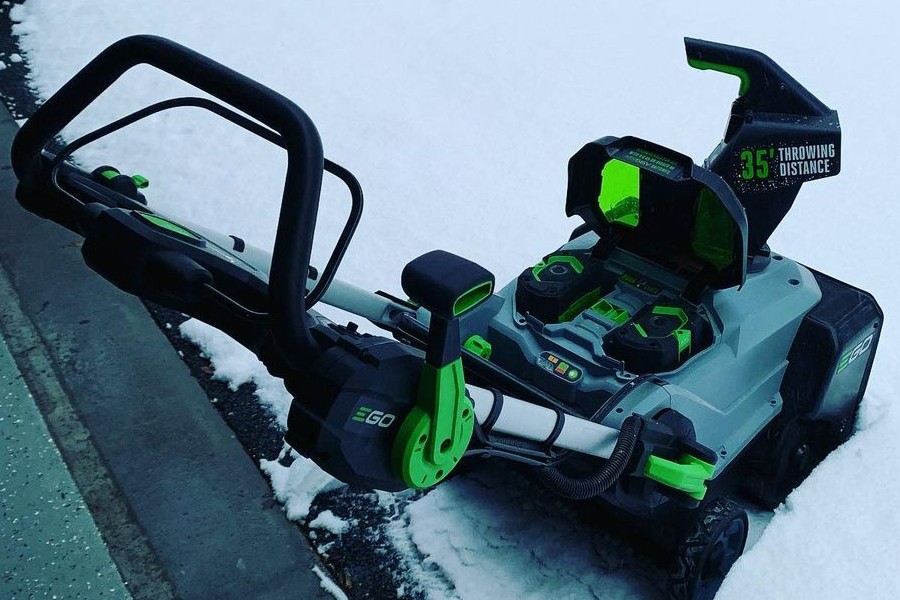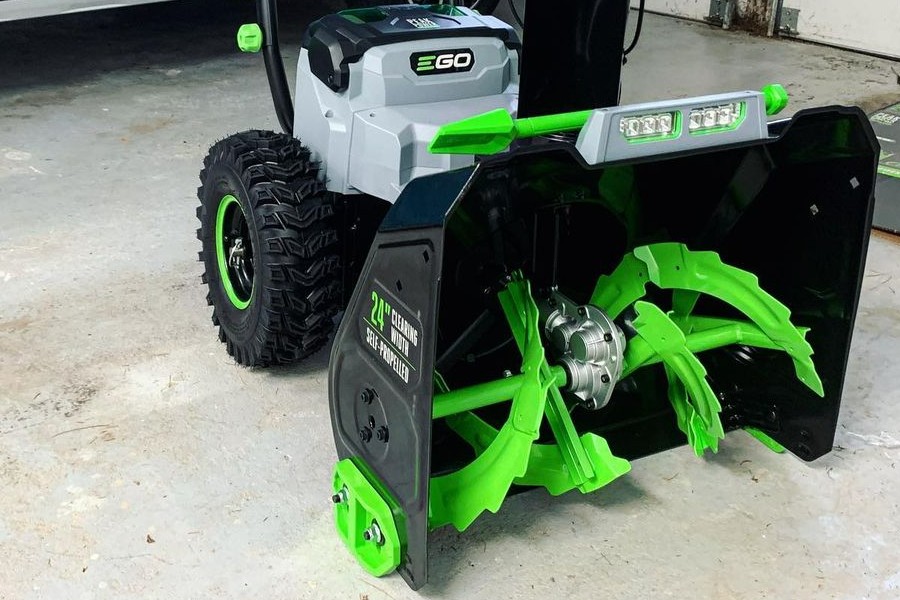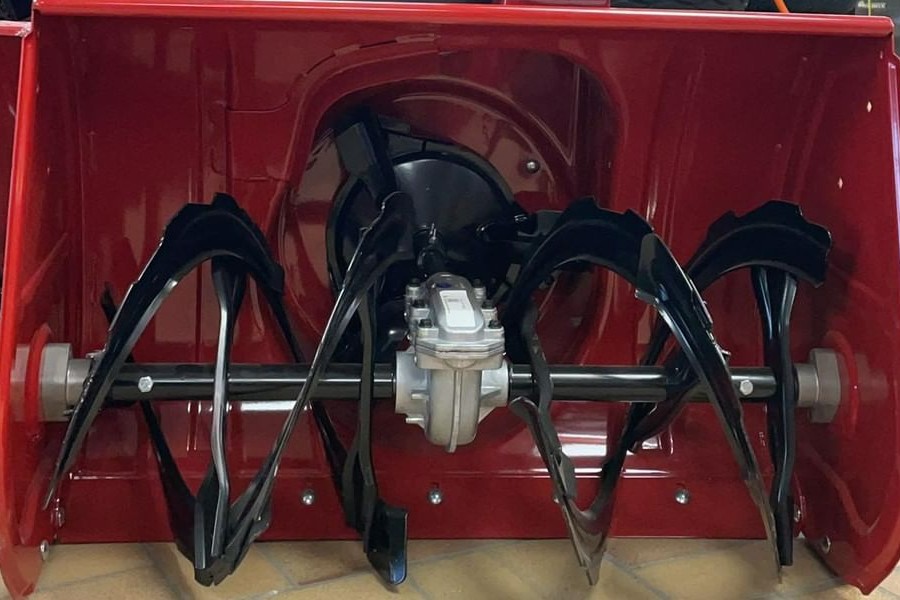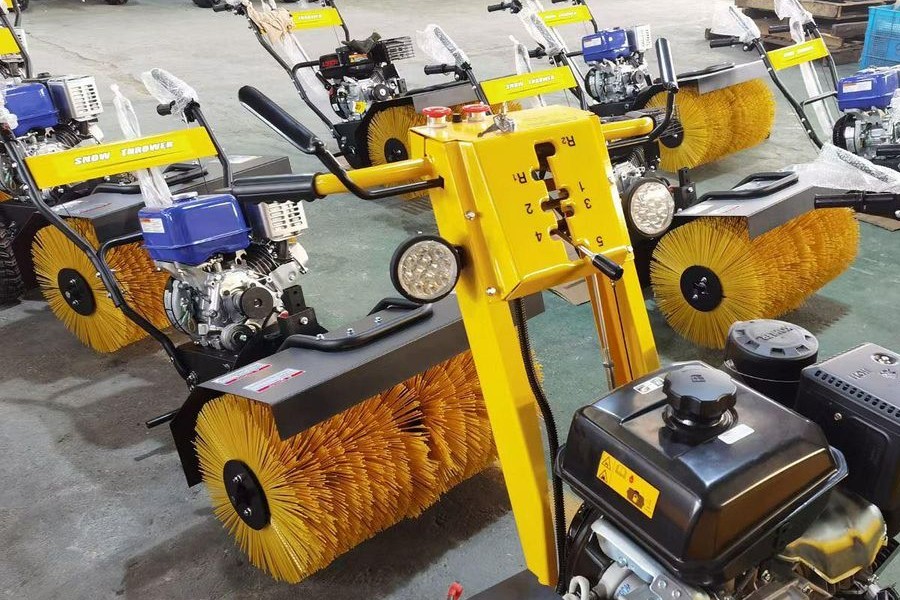It makes no sense to buy a blower that will neither handle the required tasks nor meet the criteria that are important to you. The electric vs gas snow blower battle is never-ending: Each type has its advantages and disadvantages. Both are capable of moving a great deal of snow, but knowing their differences can help you to choose the best option for your winter cleaning needs. In this article, I will analyze the main characteristics of an electric and gas snow blower.
Pros and Cons of Electric and Gas Snow Blower

Electric snow blower:
- Doesn’t pollute the air;
- Low cost;
- Compact size, quiet engine.
- Doesn’t clear the big areas;
- Not ideal for heavy and wet snow;
- You have to manage a cord.

Gas snow blower:
- Ideal for big areas;
- Allows you to clear heavy snow;
- Doesn’t have a cord.
- It pollutes the air;
- High cost;
- Heavy and loud.
Electric or Gas Snow Blower Buyer’s Guide
I will tell you how to choose the right type of machine, considering its pros and cons. When choosing such important equipment, you need to clearly define the scope of work, the main characteristics of the machine that are important to you, and the cost. These points will give you an idea of which machine will solve your problems.
Electric Snow Blowers: Overview of Pros/Cons

This option is more compact and less powerful, but this doesn’t mean that it is worse. Knowing the capacity of the machine, you can understand whether it is suitable for your purposes.
Pros:
- An electric machine is great for clearing tight spaces: patios, sidewalks, and short driveways;
- It is cheaper than a machine with a gasoline engine;
- It works quieter;
- You do not have to change oil, gasoline, and spark plugs. However, since electrics do not withstand water, you should ensure that the machine parts are dry and clean. Store this type of technique in a dry place;
- If you care about the environment, an important criterion is that the electric blower does not directly pollute the air.
Cons:
- Its continuous use on a large amount of wet snowdrift can cause the machine to break down;
- When using a non-rechargeable model, you have to manage the cord;
- The working area is limited by the distance to the nearest power outlet;
- If you want to utilize an electric snow blower for longer distances without using a power outlet connection, purchase the option with a rechargeable battery. Consider that battery-powered models are more expensive.
Gas Snow Blowers: Overview of Pros/Cons

A machine with a gasoline engine is considered to be more powerful, but it is not suitable for all tasks. Its characteristics differ from the electric machine.
Pros:
- Gas snow blowers effectively clean large areas;
- They are more durable and have more power, allowing you to clear heavy wet snowdrifts without fear of breaking the machine;
- This option does not have a cord;
- Gas-powered machines are quite heavy, but this might be an advantage: More weight means reliable traction.
Cons:
- The main disadvantage is that gas snow blowers are much louder;
- These tools require much more maintenance. You will often have to add gasoline, change oil, and spark plugs. At the same time, the repair is easy;
- A gas snow blower is larger and heavier than the electric model, so it is not as convenient to work in narrow areas with it;
Its cost is usually higher than the price of an electric machine; - It also pollutes the air.
Which Is Better?
If you want to spend less money, save nature, clean small areas, and not service the engine too often, you might want to choose an electric snow blower. Are electric snow blowers any good? You won’t have to hear the loud engine squeal every time you clear snow. However, gas snow blowers are more powerful and efficient at clearing large areas.
FAQ on Electric vs Gas Snow Blower

You can easily choose the right option if you know for what tasks which machine is used. Pay attention to the important points for you when choosing a machine.
Are electric snow blowers quiet?
Electric models are quieter than models with gasoline engines. Cordless blowers are widely considered to be the least noisy, while corded electric blowers are less loud than gas engines but still far from silent. Opting for an electric model will protect your hearing from severe damage anyway.
Is a gas snow blower better?
If you need to clear big areas often, then a snow blower with a gasoline engine is the best option for you. Also, it is recommended for cleaning heavy and wet snow. This machine is more durable in maintenance but has a high price and pollutes the air.
How long does a battery last on an electric snow blower?
Most battery-powered snow blowers operate for 30 to 45 minutes if the snowdrift is not heavy or wet. Otherwise, the operating time might be reduced. You should also ensure that the engine does not overheat while cleaning wet snow.
Choose the Right Option for You
Choosing this equipment based on the size of your driveway, sidewalks, or other areas that need to be cleared of snow is the first step to finding the right machine for the job. However, other characteristics are also important. When you know all the pros and cons of electric snow blowers and their gas counterparts, it is much easier for you to make a choice.
Which characteristics are important to you in the first place? Leave your thoughts in the comments!

